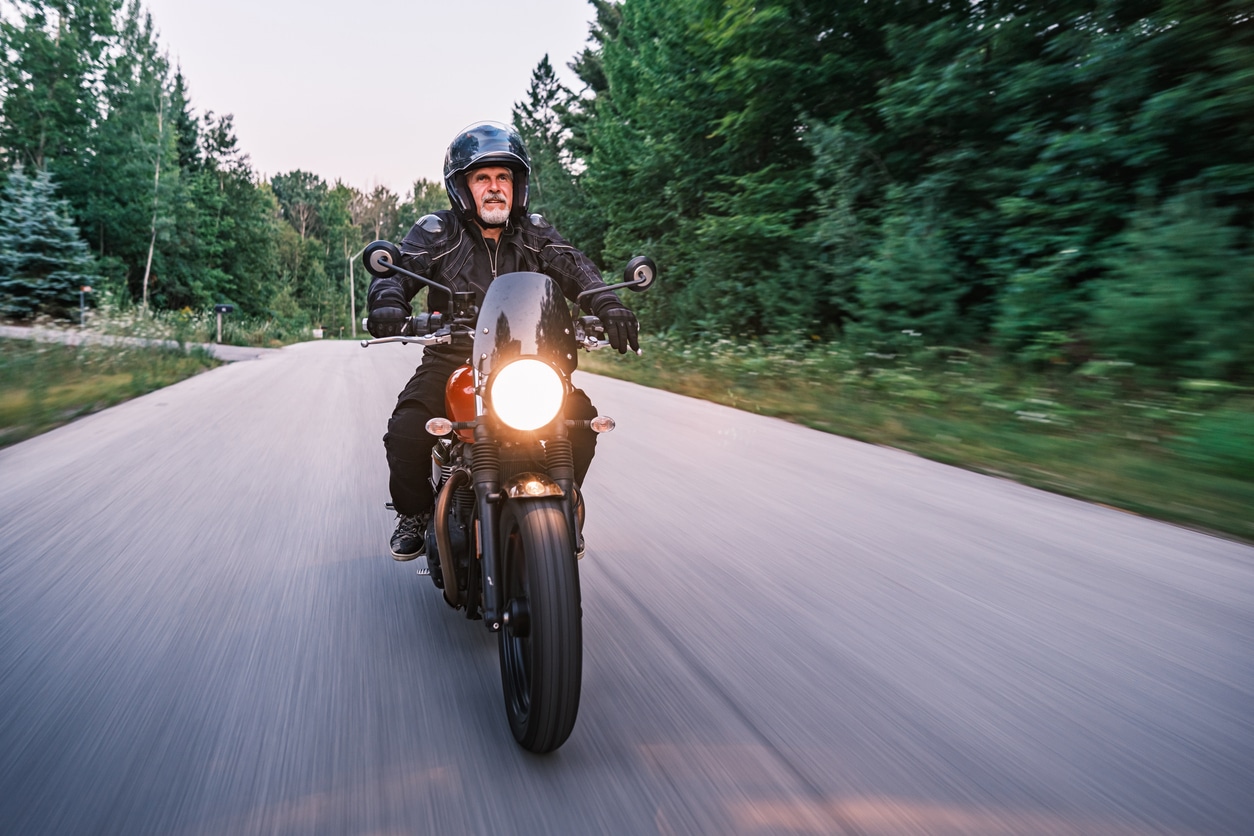For many riders, motorcycling is about more than just getting from point A to point B—it’s about freedom, connection and a lack of parallel parking. But along with the thrill of the open road comes an often-overlooked risk: hearing damage. Understanding how motorcycle noise affects your ears and taking steps to protect your hearing can help ensure that you continue to enjoy every ride for years to come.
Why Motorcycle Riding Puts Your Hearing at Risk

Motorcycles produce two primary types of noise that can be harmful over time: Mechanical noise and wind noise.
Mechanical noise includes all the sounds generated by your bike itself—such as engine rumble, exhaust pipes and horns. Depending on your model and modifications, these sounds can easily reach unsafe decibel levels.
The second source, wind noise, is louder than you might think. Research has shown that the air rushing past a rider’s helmet can reach between 90 and 110 decibels (dB), depending on the speed you’re riding.
Just a few minutes of exposure at those volumes can lead to temporary or even permanent hearing loss. That’s why ear protection should be just as essential as a helmet or gloves before you hit the road.
Simple Ways To Protect Your Hearing on the Road
Try a few of the following to reduce noise exposure:
- Use motorcycle earplugs. High-quality earplugs can make a big difference. Filtered or custom-fit plugs reduce harmful noise without blocking out important sounds like traffic alerts.
- Choose a noise-reducing helmet. All helmets help protect your head, but not all are designed to reduce sound. Look for models that advertise aerodynamic shaping or added padding to minimize wind noise. A properly fitted, full-face helmet typically offers the best protection.
- Ease up on the throttle. The faster you ride, the louder your environment becomes. Riding at moderate speeds reduces wind and engine noise, improving overall safety.
Your hearing is vital for everyday life, from enjoying conversations to staying alert on the Austin roads. If you notice signs like ringing in the ears or trouble understanding speech after a ride, it’s a good idea to schedule a hearing test.
Contact Austin Auditory Specialists to learn more about long-term hearing protection for riders.